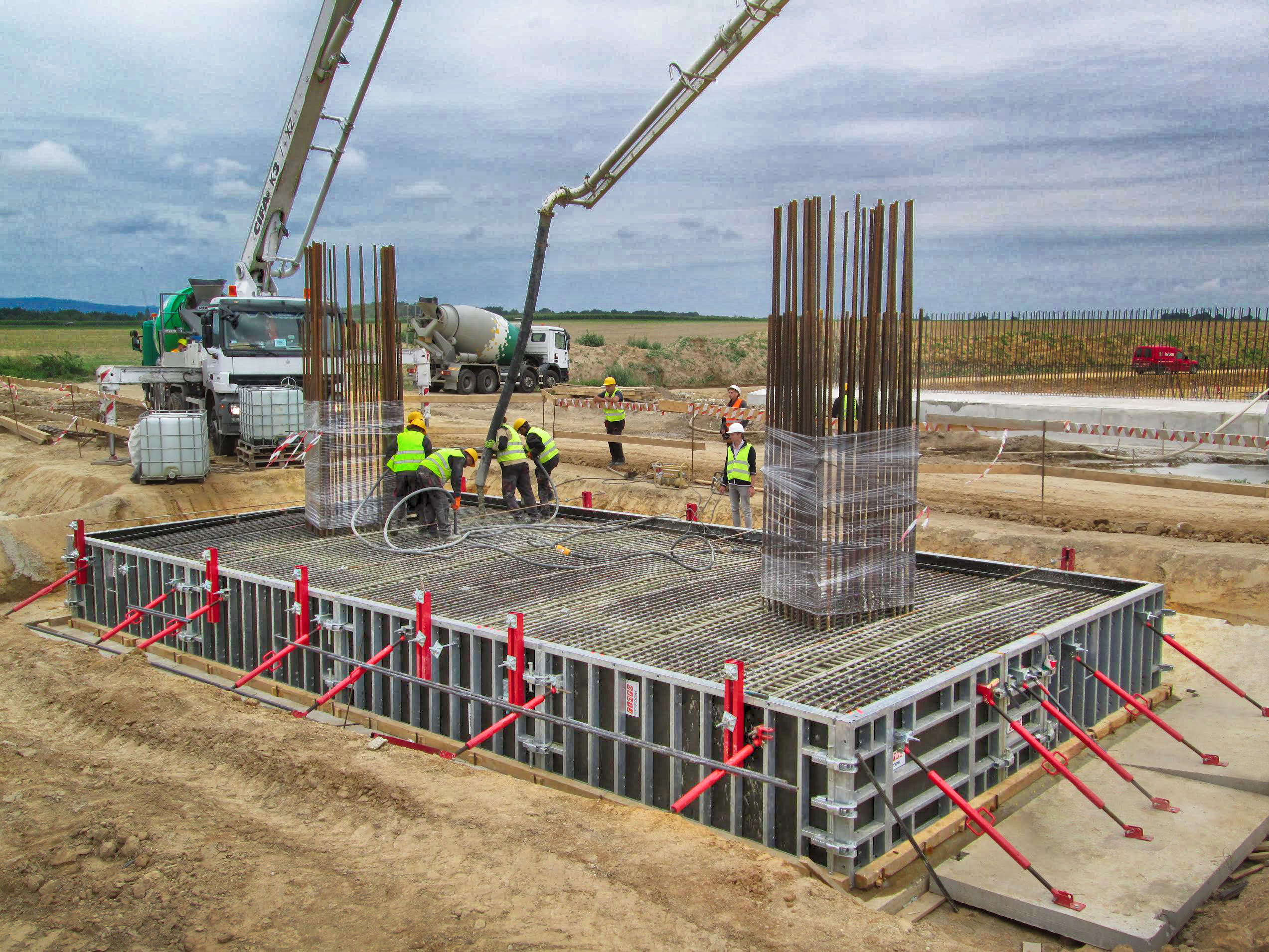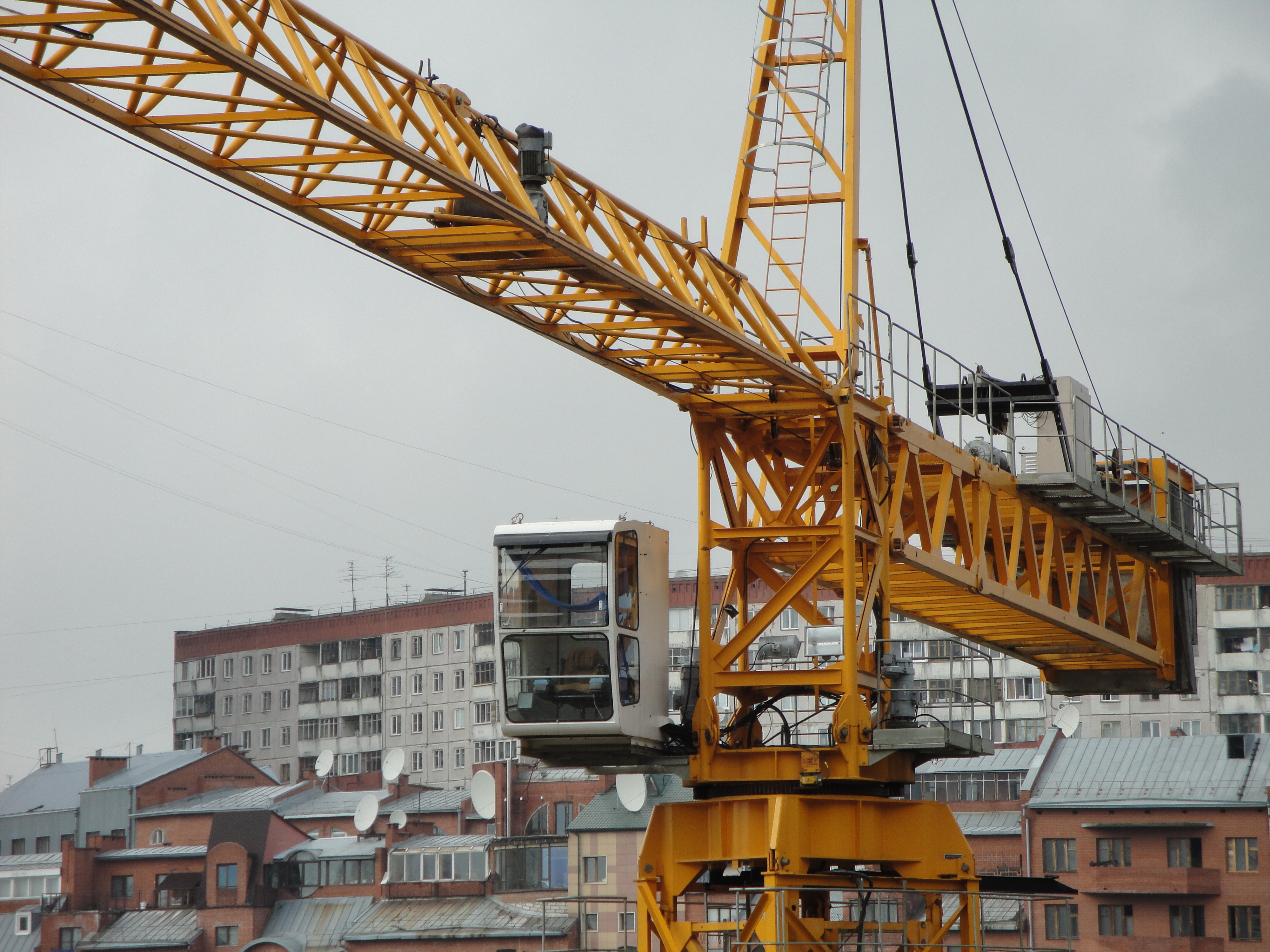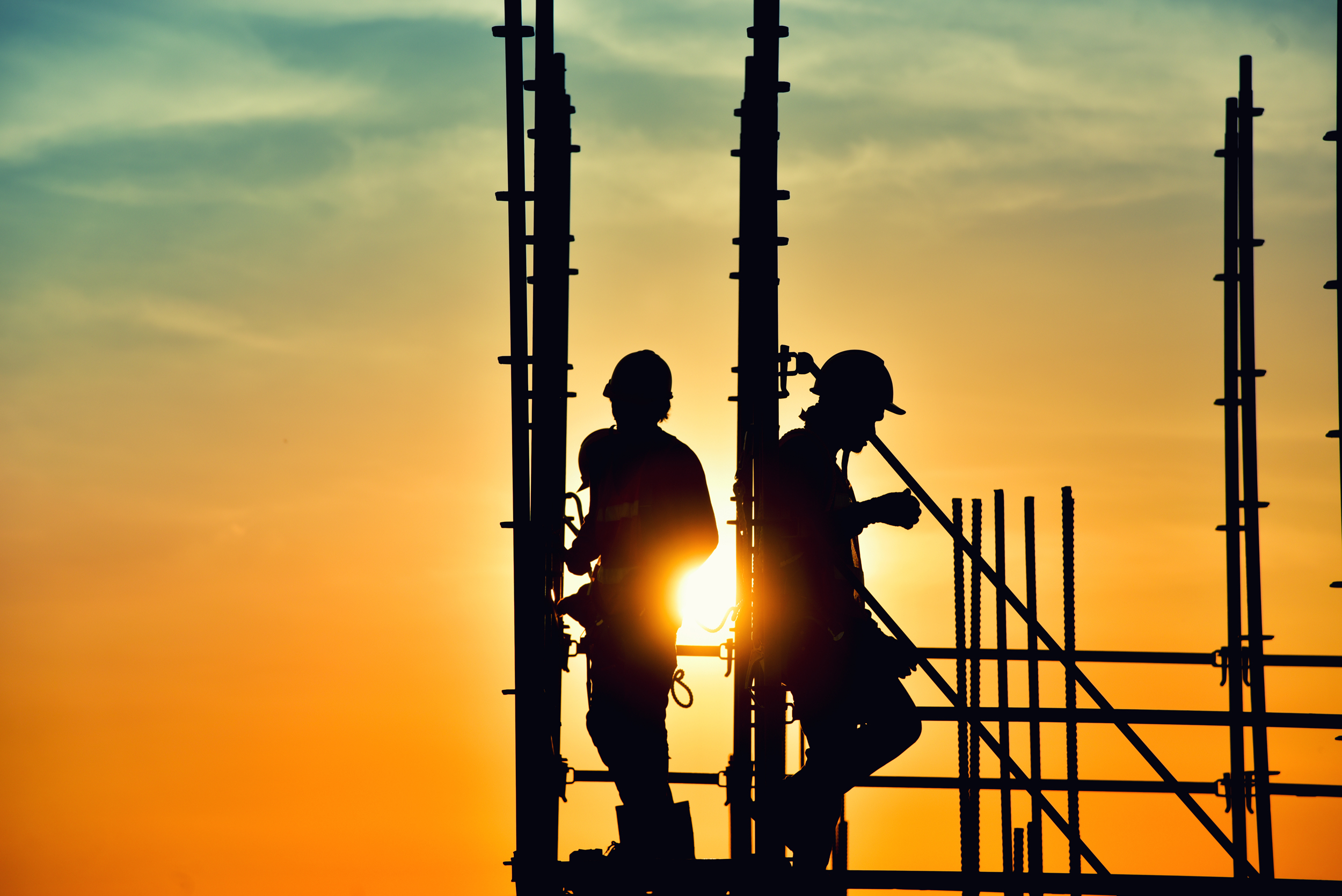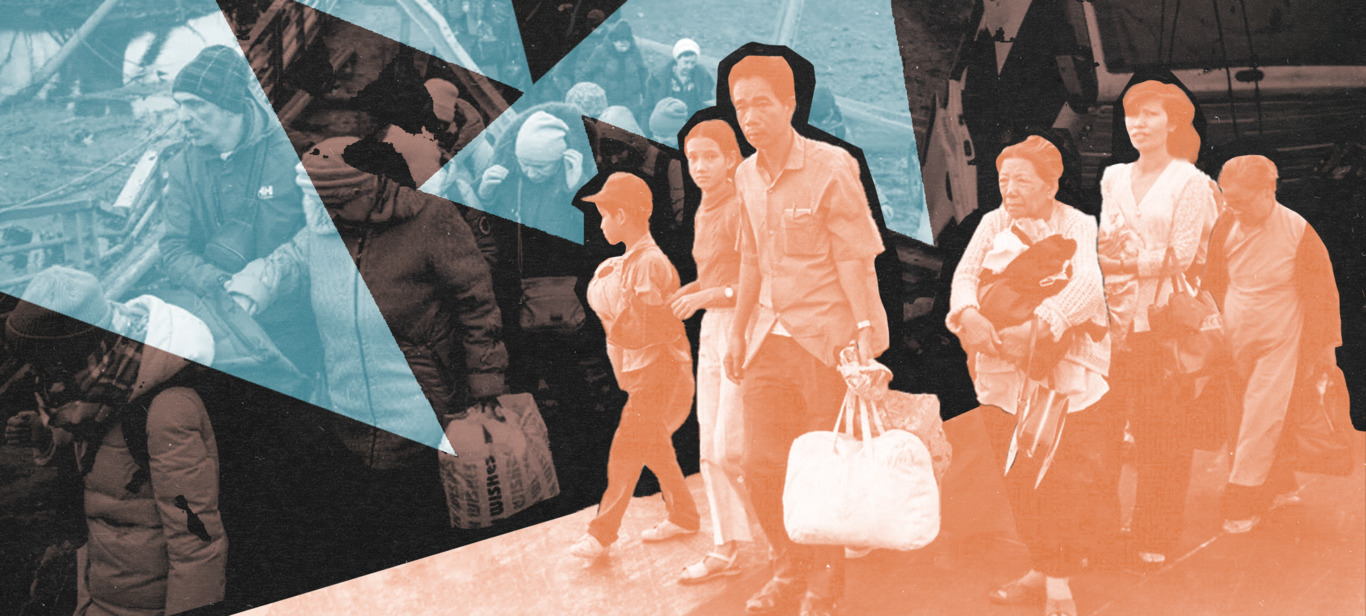With plans afoot for a new Labour Code in Ukraine, we spoke to Vasyl Andreyev, head of the Union of Construction Workers and Building Materials Industry about the reality of defending workplace rights in the country.
Trade unions today are often associated with the Soviet era, when they performed an assistive function for the authorities, rather than defending the rights of workers. How important are union rights in Ukraine right now? Why is this issue still far from unpopular?
As an idea, trade unions aren’t so popular due to the lack of a culture of defending your rights among our fellow citizens.
First and foremost, this is about people at your workplace. We have a blind faith in the idea that “the man with money knows what he’s doing”.
Although everyone understands that the labour market is a two-way street. Just as workers get something from their wages, so does the employer need the added value that the workers bring them.
In our country the idea of creating a trade union movement is incredibly relevant today, looking at the distance between owners and workers. Together with Moldova, Ukraine is one of the poorest countries in Europe. And this situation hasn’t changed for the better in the last 10 years.

Vasyl Andreyev
Could you talk about the history of your union and its regional representatives? Can you talk about some examples of success and failures of the trade union movement?
Ukraine’s Union of Construction Workers was set up in 1957, after the merger between the construction workers’ union and union of construction industry workers. It has undergone different stages of development – millions of unionised workers, united by the union of construction workers, and a drop in membership. But now everything is concentrated on solving the urgent problems of our members and overcoming challenges arising when we need to defend our members from employees, including those abroad. Here I mean international corporations.
Our regional cases involve Dnipro region, where there are attempts to raise wages at the Heidelberg cement factory, as well as Lviv and Khmelnitsky regions where there are negotiations with Irish company construction materials company CRH. And the last case is restoring justice for the more than 400 members of our union at a Vinnytsa cement factory which produces materials for the Ukrainian state railway company [Employees at the factory have not received wages since February 2019, when the factory shut down operations].
What’s the union’s position regarding Ukraine’s labour and, in general, the labour legislation in the country?
Well, what shouldn’t happen is what is currently going on with the draft bill of Ukraine’s new Labour Code. No one has heard or seen it, it’s unclear who’s writing it, but everyone is saying that workers should be slightly discriminated against.
We see the idea of creating an ultra-liberal Labour Code instead of the existing Code of Labour Laws very negatively. We don’t accept the thesis that there are too many rights which workers aren’t using at the moment. This is, in general, a very strange statement to make. Instead, it’s the case that legal procedures don’t guarantee certain rights. But there are no rights that workers wouldn’t use. As we showed on 7 November on the International Day for Decent Work, we will resist an ultra-liberal labour code at all costs. If it’s passed, we’ll start a campaign for its cancellation.
At the end of the day, the international trade union movement has positive experience of this. For example, Georgia moved away from liberalising its labour laws under pressure from trade unions and the International Labour Organisation. We see that, in Ukraine, reforming the labour laws in the ultra-liberal vein is just as difficult an idea for the political class as lifting the moratorium on land sales. This will have long-term consequences for everyone involved in writing the Labour Code with a focus on defending the rights of employers or limiting the rights of anyone in the labour market.

You mentioned workers’ rights which aren’t guaranteed. What do you mean by that?
Union members don’t use the right to fire their boss (Article 45 of the Codex of Labour Laws) if the latter seriously violate labour legislation. Moreover, there’s also the right for the union to defend its members from job cuts or negotiate the cuts. It’s also hard for workers to use their right to receive three months of material assistance if they quit voluntarily after their employer breaks the labour legislation. The right to divide up residences is also guaranteed in the trade union legislation. Right now, dozens of rights have a narrow scope for interpretation.
All this shows the depth of inequality, a lack of legal culture, in particular among our citizens, union members, workers who aren’t union members, and in general the legal outlook of all Ukrainian citizens. But I will say again that this is connected to the lack of a mechanism of implementing any legal rights.
Since the signing of the EU Association Agreement, is Ukrainian labour safety legislation at least a little bit closer to European standards?
It’s hard to say. Before 2019, the Ukrainian government reported on a minimum of 13 directives – there’s a mechanism of implementation, provided for by the 40th amendment to the Association Agreement, where the European Union directives on work, safety and equality are written out.
These 13 directives were included in two draft labour codes, Bill 1658 and 955, which the Ukrainian parliament refused to pass, after the new Servant of the People party came to power. In our industry, the focus was on the 1992 European Directive on safety and health at temporary or mobile construction sites, which concerns increasing safety and health requirements at construction sites. Despite the fact that the client of a development is obliged to hire a coordinator on safety and health for all subcontractors, this directive has not been implemented in full. We can see that European directives need to be implemented at the level of the law (and this is emphasised by experts at the International Labour Organisation) or at least a decision by the Cabinet of Ministers. They would then have the highest level of legal power in comparison with other documents.

Directive 92/57 was implemented by Ukraine’s Ministry for Social Policy, and it was like a bone in the throat for new laws designed to deregulate business, urban planning and construction and other policies minimising the state’s influence on the construction business. And it’s because of this, of course, that we can’t say that the Association Agreement has helped in defending safe conditions for our members.
Which trade union powers are the most important and used most often?
The ILO’s concept of decent work has four elements. I always try to emphasise them, including at today’s press conference. First off, this is legal or declared work, that is, official employment. And from this comes social insurance, that’s the second element. Decent wages and decent working conditions are the third element. And the fourth is the right for trade union representation in collective bargaining. These are the four elements and rights in Ukrainian legislation. In effect, these are the four most important rights and power that trade unions have.
You mentioned temporary and mobile construction sites. What kind of non-standard forms of employment are there in the construction industry?
Unfortunately, there are no non-standard forms of employment in the construction industry, apart from the lack of formal employment. I didn’t misspeak: unfortunately, the worst forms of non-standard employment, including the leasing of workforce, are more formal than those in place at construction sites. In our reality, people work without any rights. We see this all the time when we have to defend our members. How can we defend the rights of a worker who doesn’t have an employment contract, but has received a workplace injury? How can he get an unpaid wage after he’s been fired? These people’s rights are not regulated in any form because they don’t exist at work. When they’re at a construction site, these workers are outside of any legal framework.
Some business lobbyists claim that it’s better to simplify and expand the opportunities for non-standard forms of employment, in order to give business the chance to regulate shadow employment. How convincing is this argument?
The example of the construction sector in Ukraine shows that the broadest use of non-standard employment, and more precisely informal employment, has no effect neither on retaining the work force (every year Poland issues a million work permits for Ukrainian construction workers), nor on the level of wages. This confirmed by the fact that, for many years, the average wage in construction has been lower than average wages as a whole in Ukraine. Don’t forget the size of the Ukrainian construction industry: it’s 3% of the country’s GDP. In Poland, the construction industry is 13-14% of GDP, so that 3% is nothing. Three billion dollars is maybe the size of the construction market in Warsaw, maybe not all of it. So I’ll emphasise it again: the expansion of non-standard forms of employment in Ukraine has not brought any positive changes for workers, nor employers.
How realistic is the prospect of pressuring employers to officially employ their workers?
You always have to fight. Of course, defending the rights of people who aren’t officially employed requires a lot of effort. In Ukraine’s construction industry, these people are mostly employed without an employment contract. But even in this situation you can defend their rights.
How can you defend people who don’t have employment contracts? What strategies do you have in this situation?
Right now we’re building a union in one of Ukraine’s most informal sectors, among tower crane operators. Organising these people into a union gives them a quick result, for example, in getting their unpaid wages paid. When people don’t have formal rights, then they have no obligations. They can stop work and start a strike at any moment, bypassing the complex procedure of a legal strike. This is a very effective instrument of pressuring the employer: on the construction site, all the work processes depend on the crane.
When legally defending people who have been fired or have lost their health in an accident, our powers are quite limited, but they get results – our rate of compensation is above average for the country as a whole. The rates of compensations that our members get is more than what Ukrainian courts would give otherwise.
Group lobbying on wage levels is also effective. Working as a group on establishing a single tariff brought a situation in Lviv whereby apartments cost 1.5 times less than in Kyiv, but crane operators get twice more than their colleagues in the capital. Collective defence of your own interests via a union gives real results quickly.
In our journal, we’ve raised concerns about the work of the State Regulatory Service, which mediates between the State Labour Agency and employers. The Regulatory Service often takes the side of business in labour disputes and thereby fosters a high rate of workplace accidents. In your work, have you encountered the Regulation Service and other state services? And can you rely on the support of regulatory agencies when fighting against private companies for workers’ rights?
I don’t have any examples of working with the State Regulatory Service. To be honest, I’m not interested in it. I think that this is an example of the biggest failure in the regulation of legal procedures and implementing labour legislation in Ukraine, particularly if we look at the court decisions that the Regulatory Service has lobbied for, such as revoking the powers of the State Labour Service and the labour inspectorate. We will promote information about what has happened on the Regulatory Service’s watch at the European Union level, emphasising that the removal of the State Labour Service’s powers violates Article 281 of the EU-Ukraine Association Agreement. It also contradicts ILO Conventions 81 and 129, which obliges Ukraine to have labour inspectorates in the industrial and agricultural sectors.

How do you cooperate with other trade unions in Ukraine?
We always promote solidarity with other unions. We support the movements of the coal workers, strikes, protests by railway workers and teachers. We support professional and technical education unions, and in certain circumstances take responsibility for organising unions there, to show everyone that a sector-wide problem is wider than a single sector. And this common action gives results: when people from different professions come out onto the street together, they are defending their own interests. For example, the construction sector supports people working in education, and coal workers came out to support our protest in 2016. That’s why solidarity support and common action is a vital element of defending the rights and interests of workers in these difficult times.
Translated from Ukrainian by OpenDemocracy



